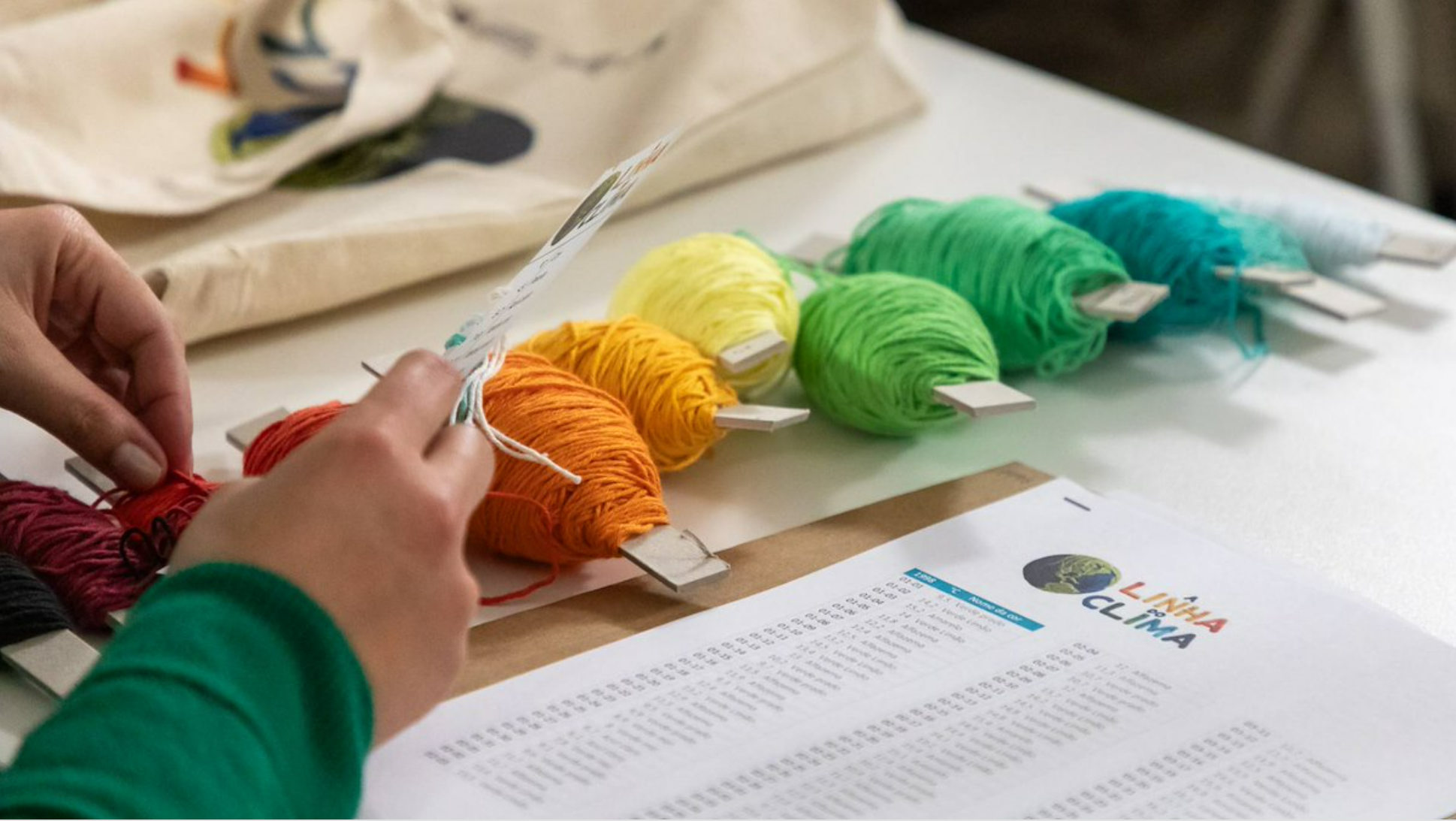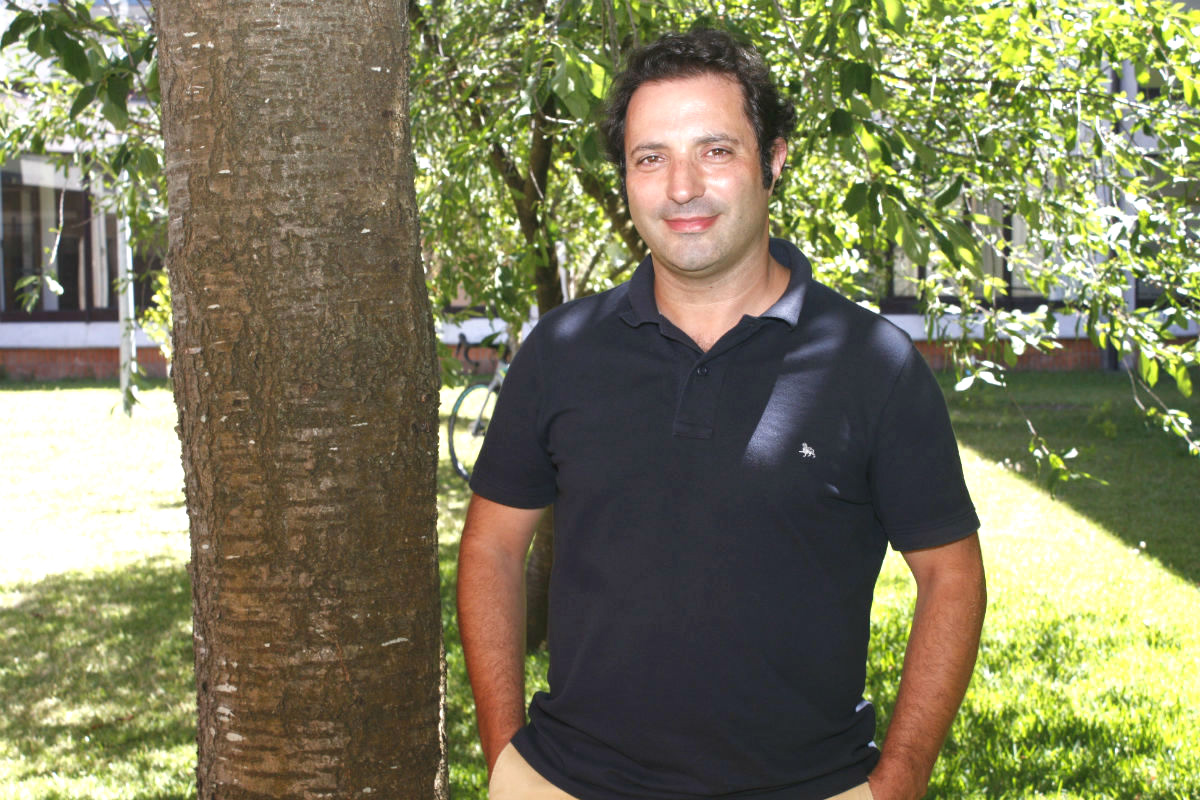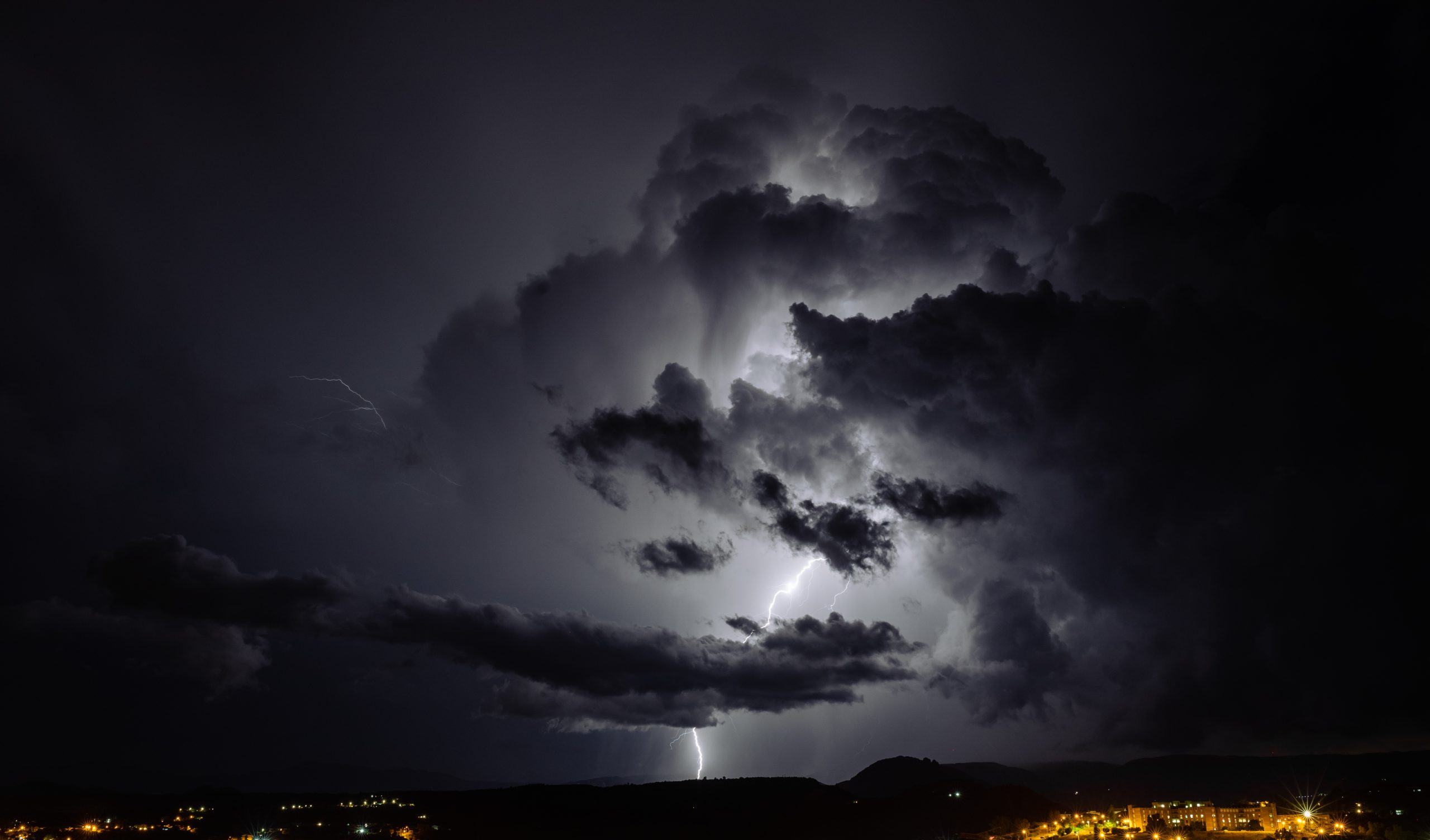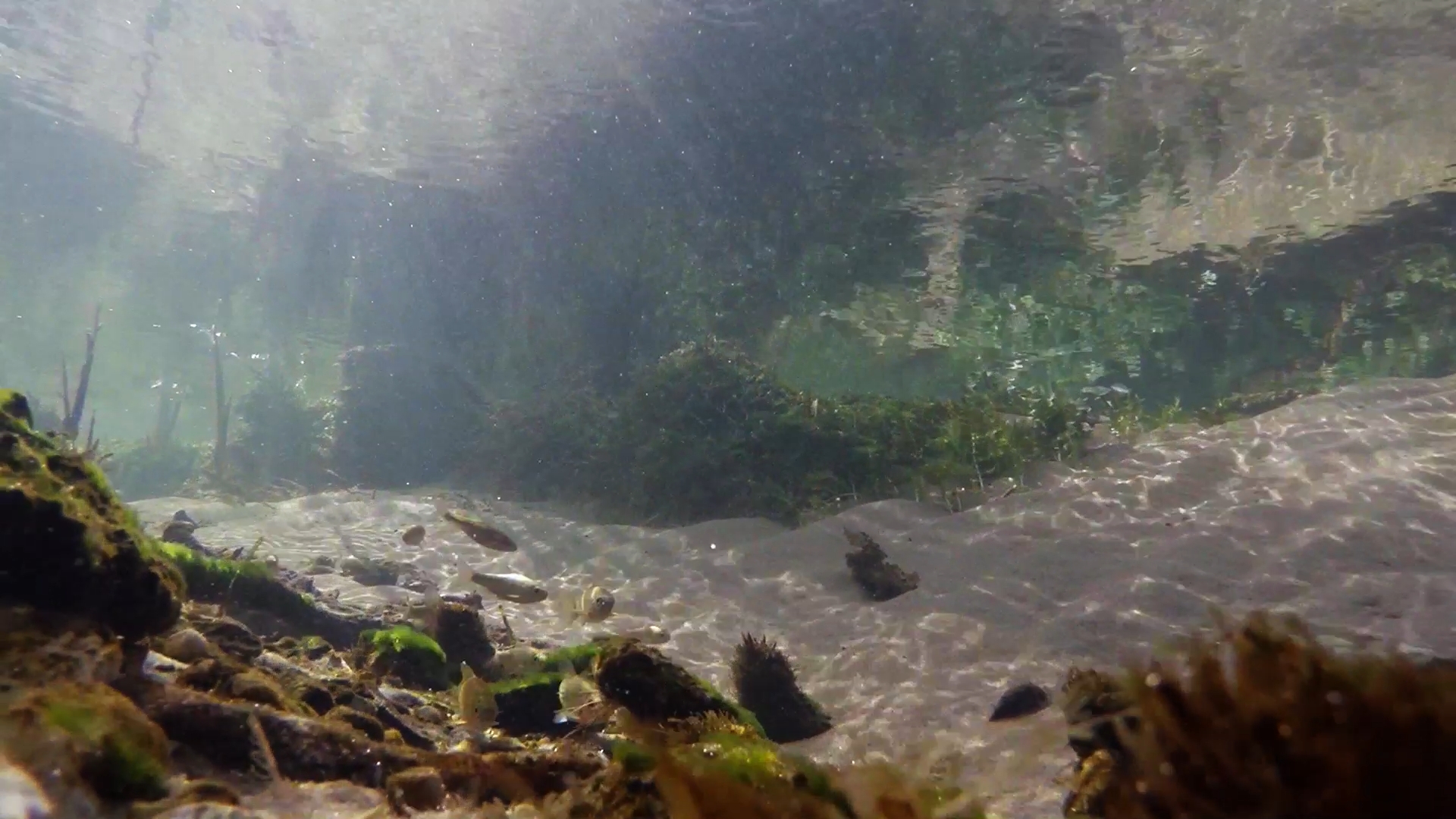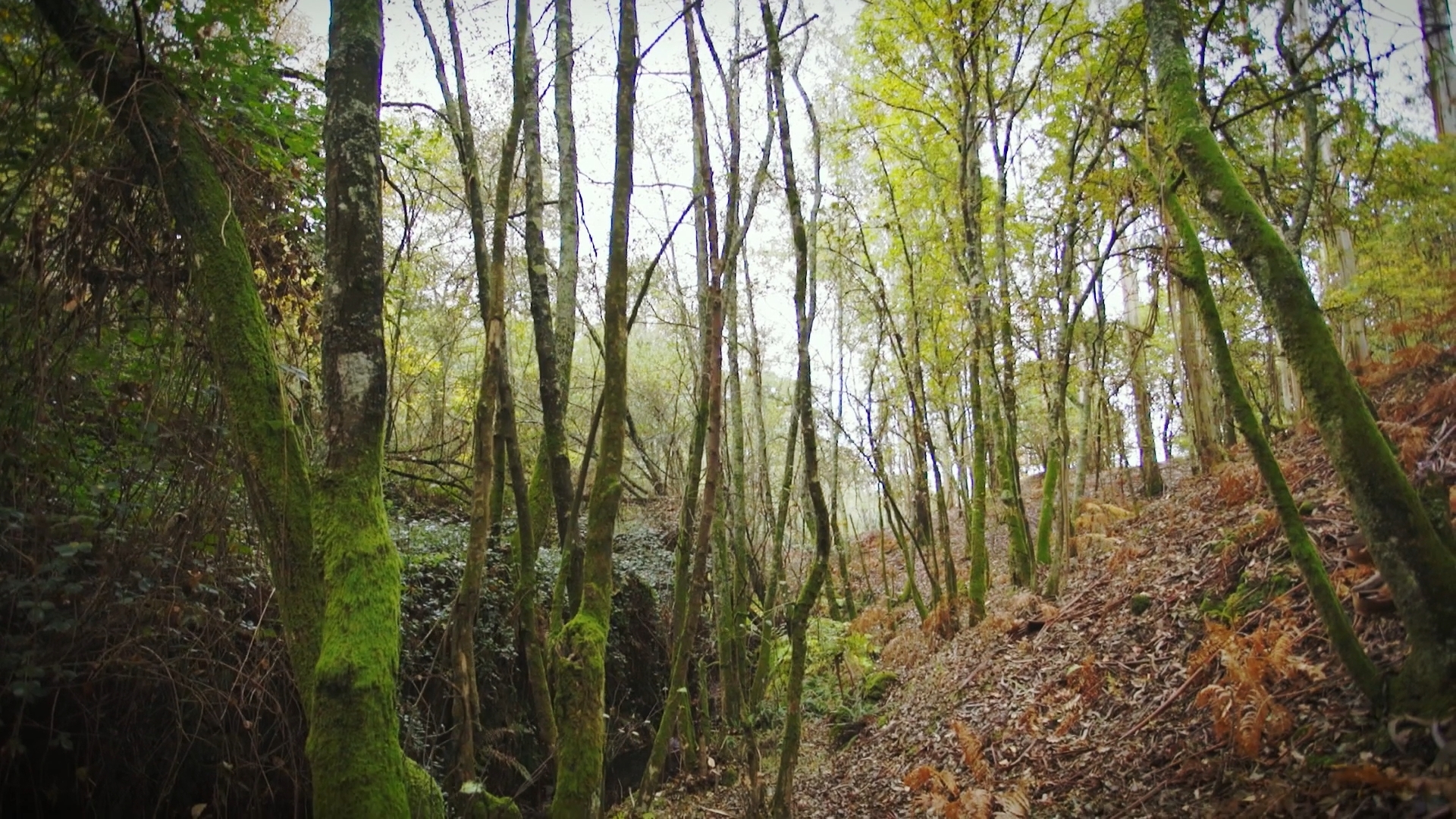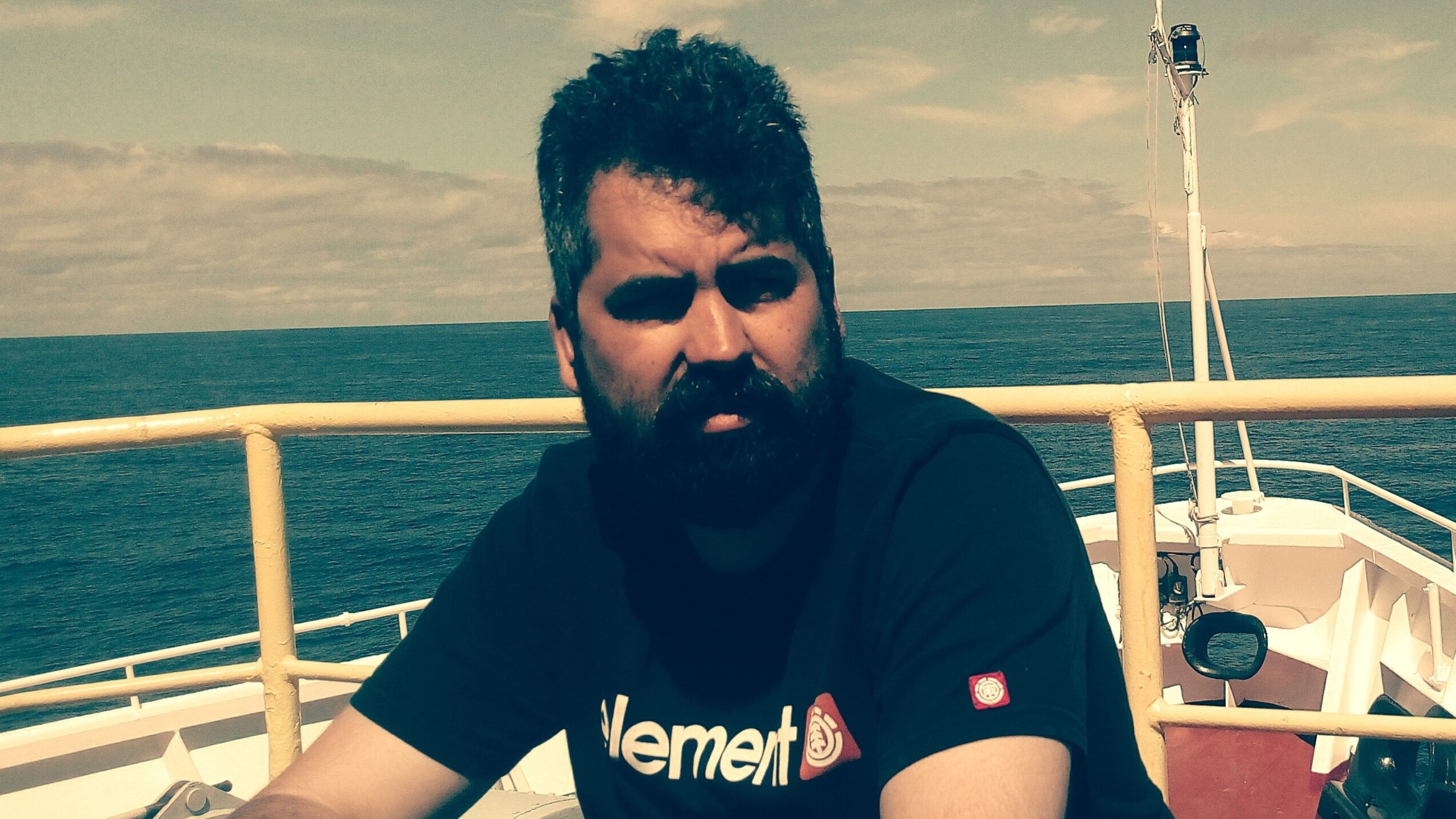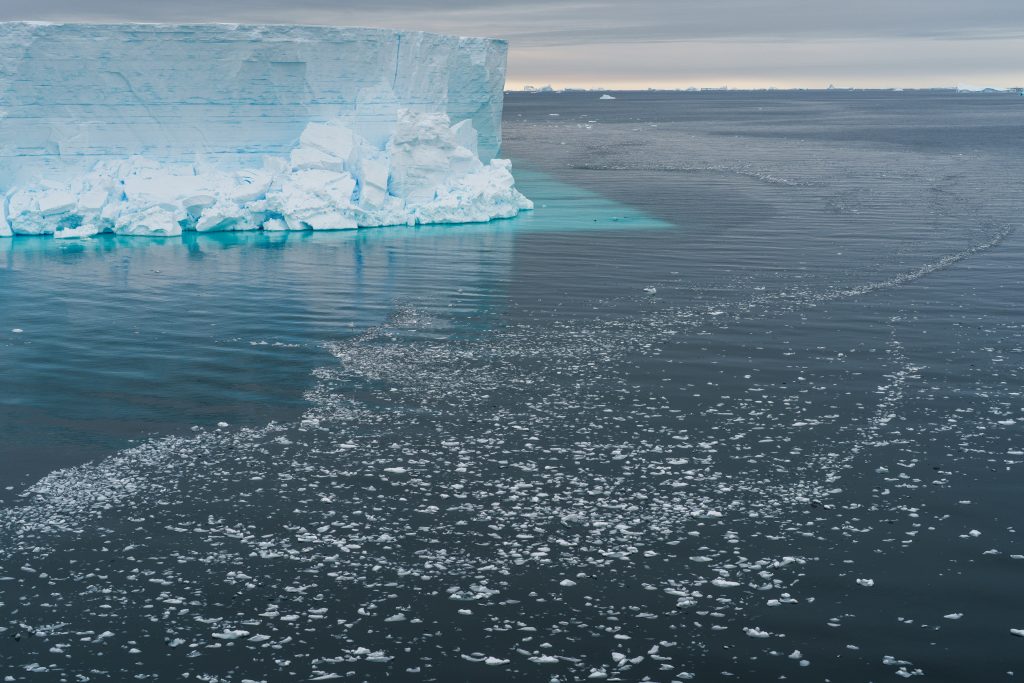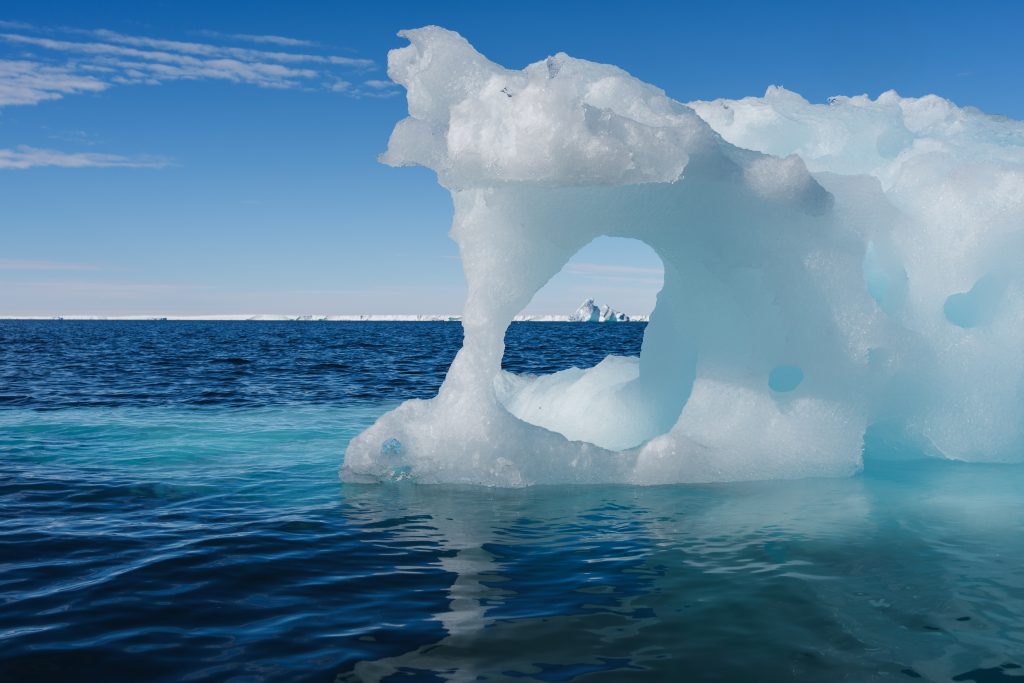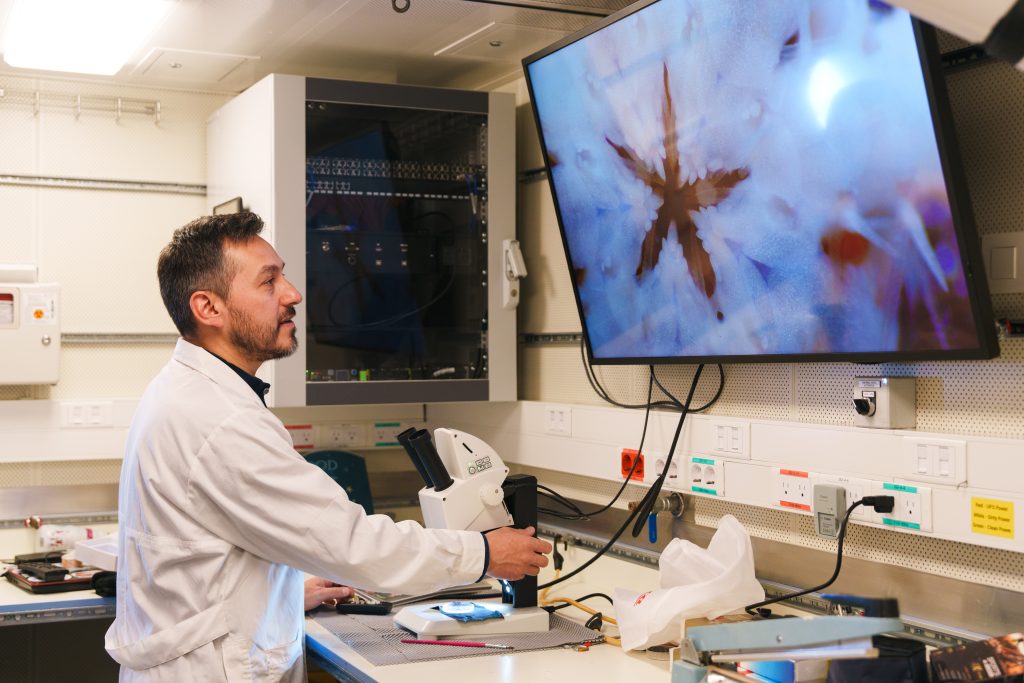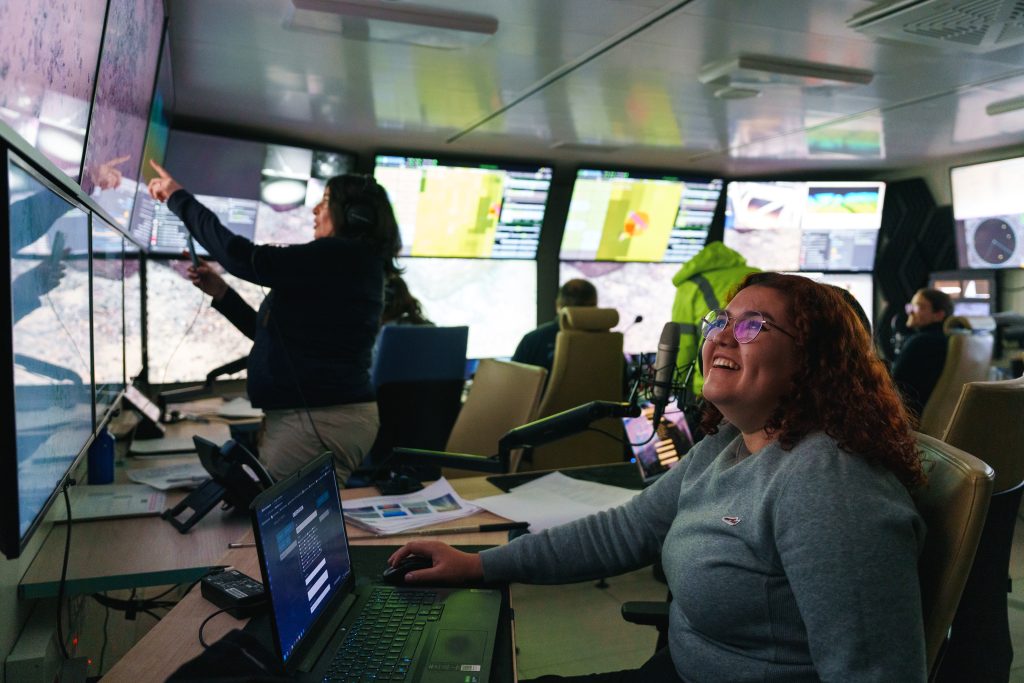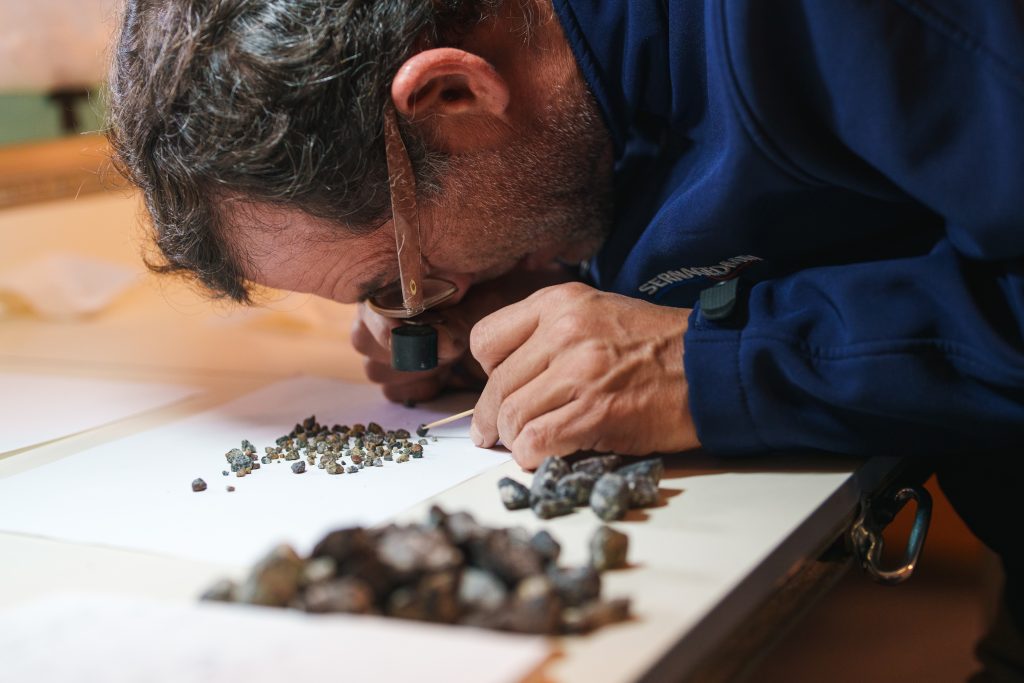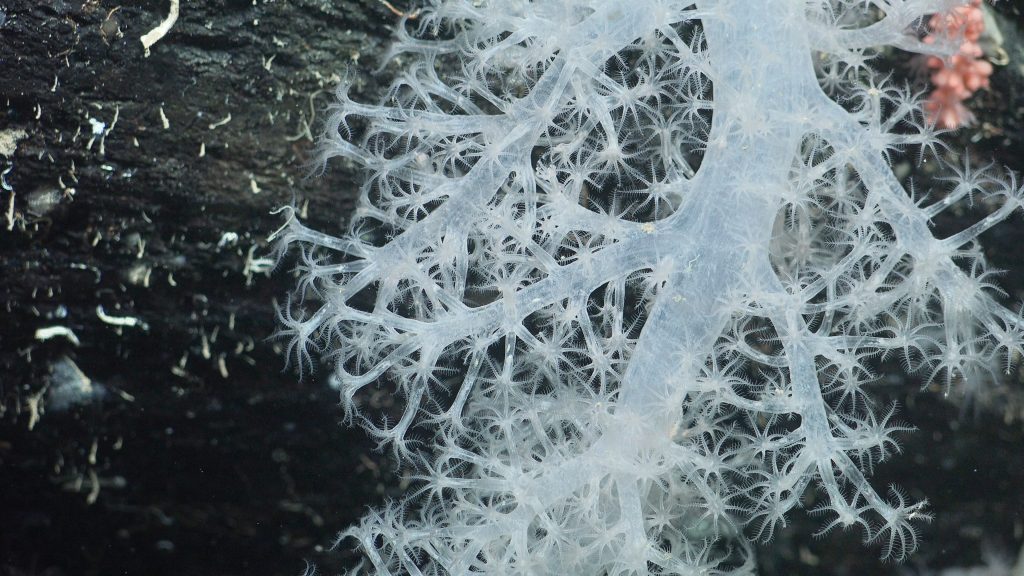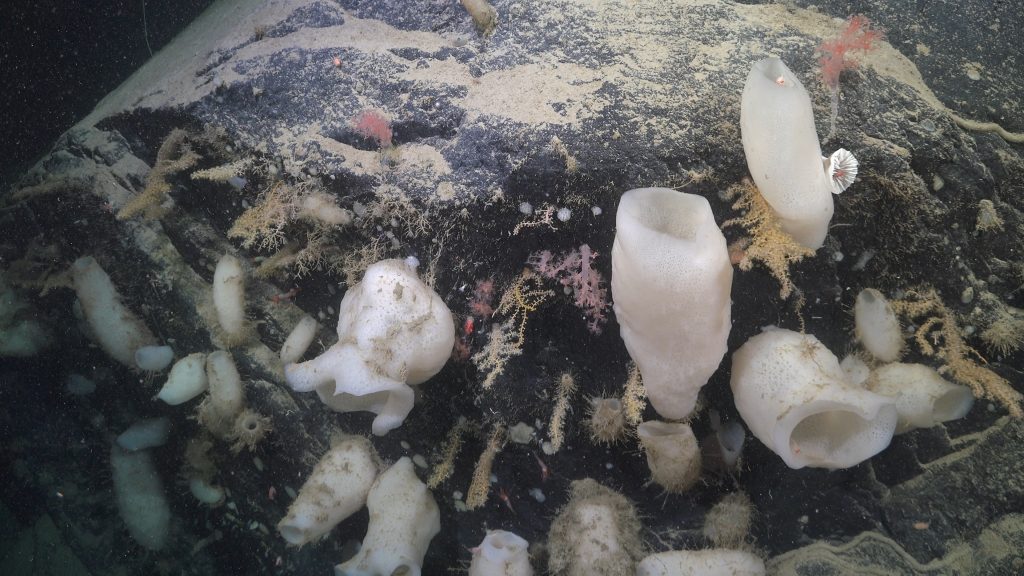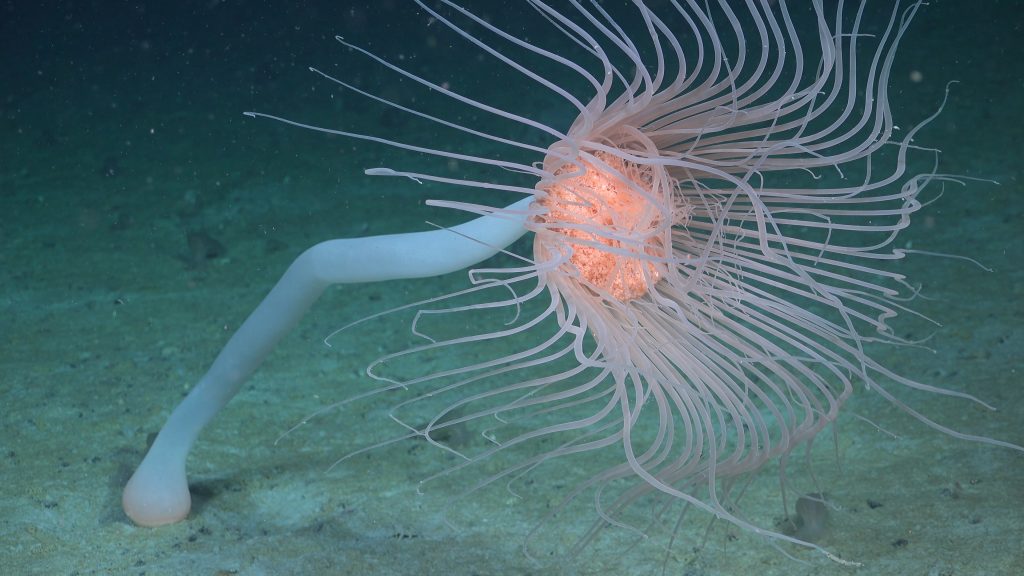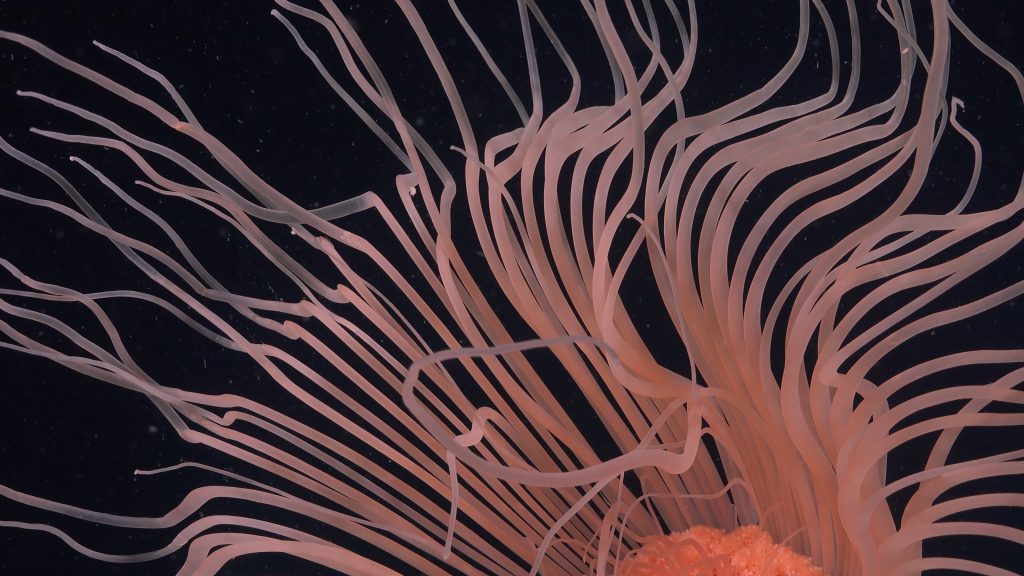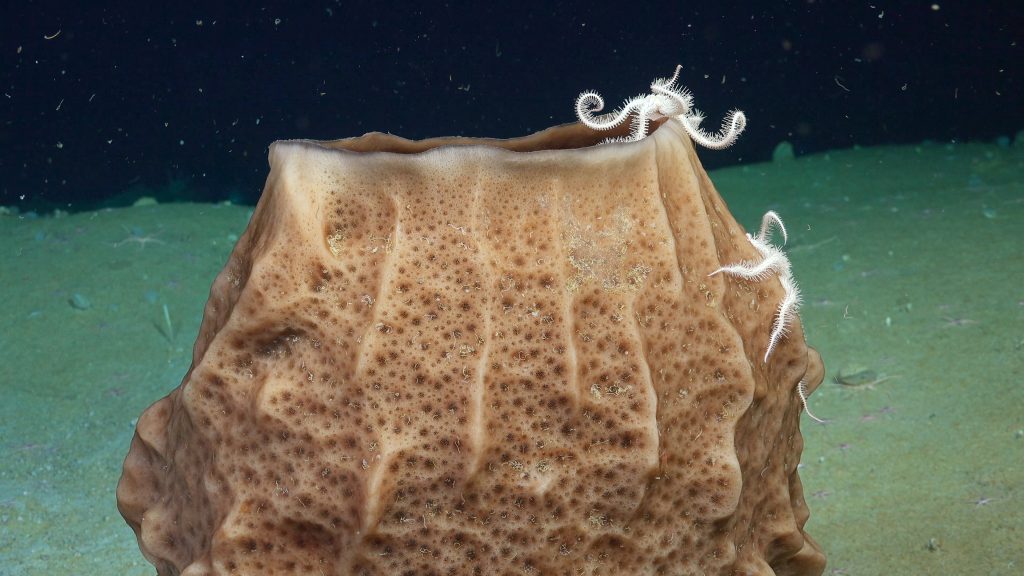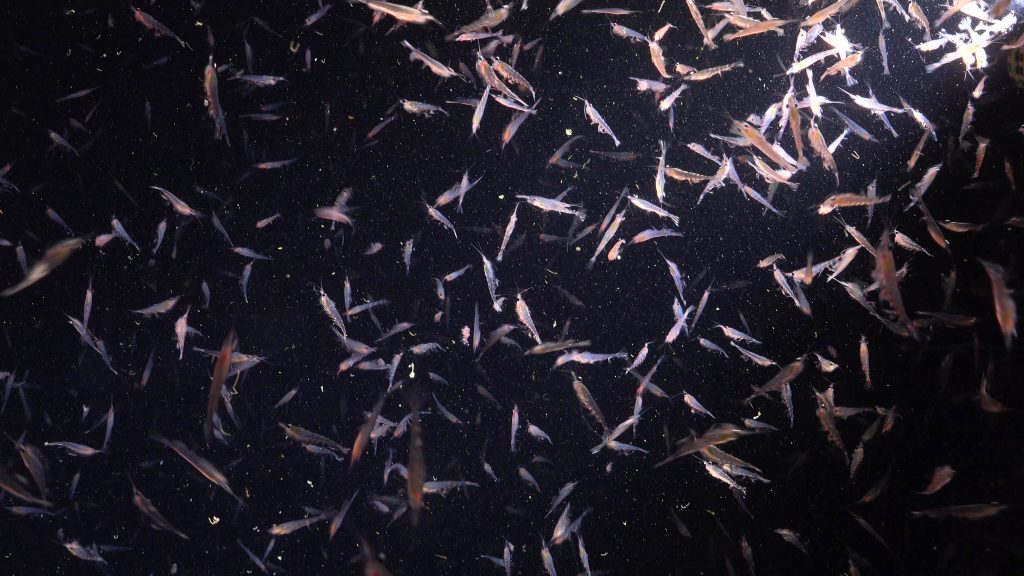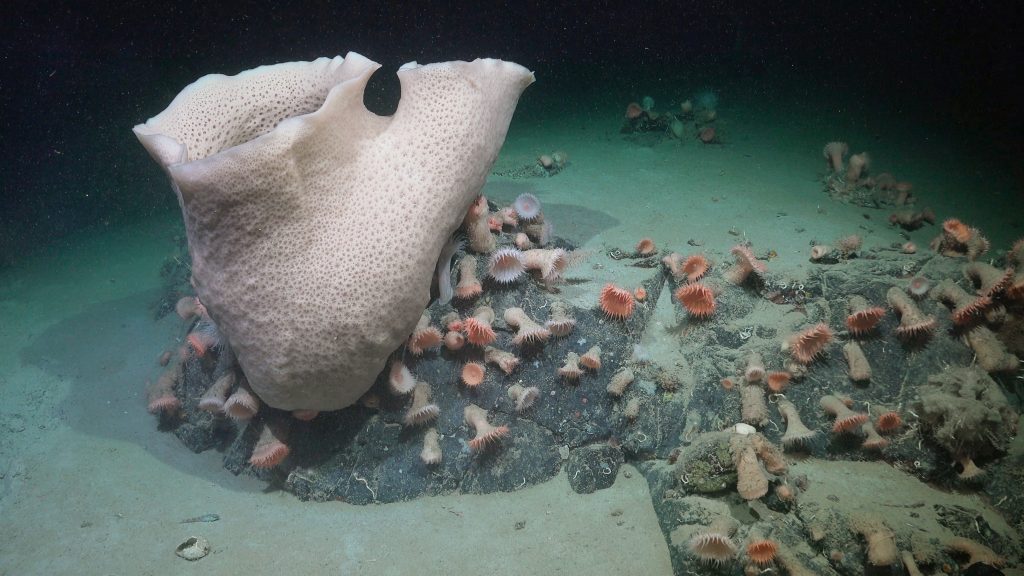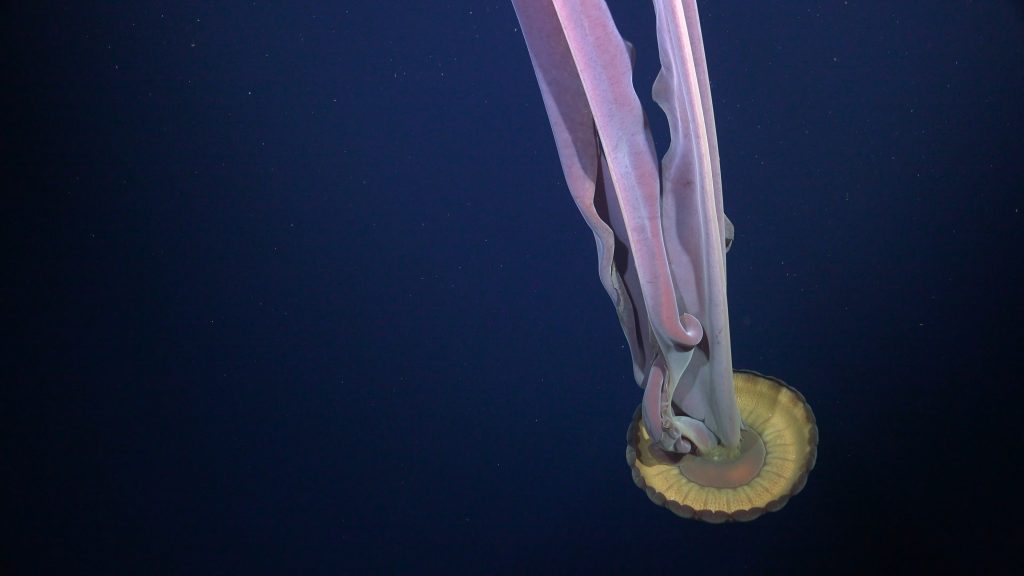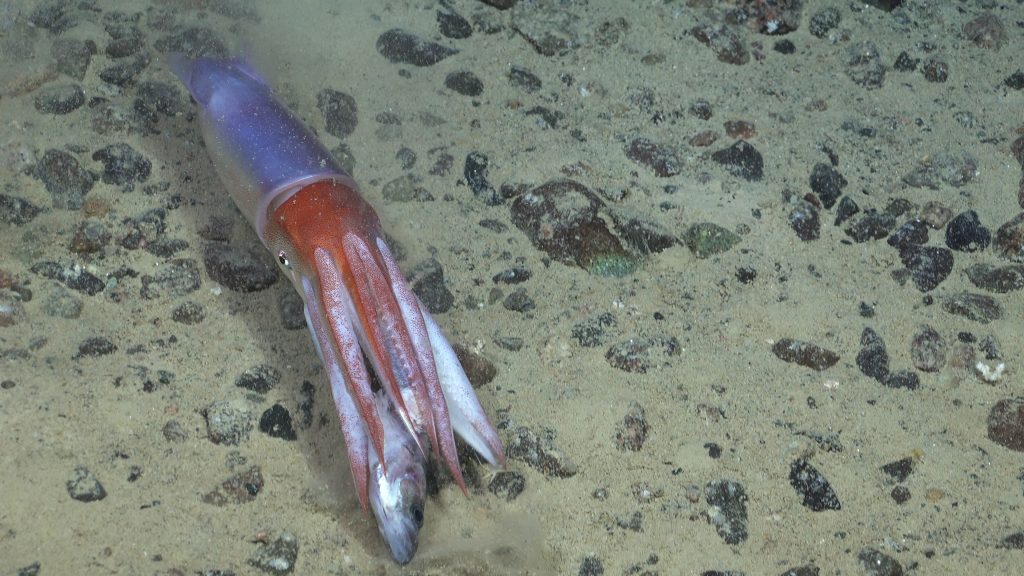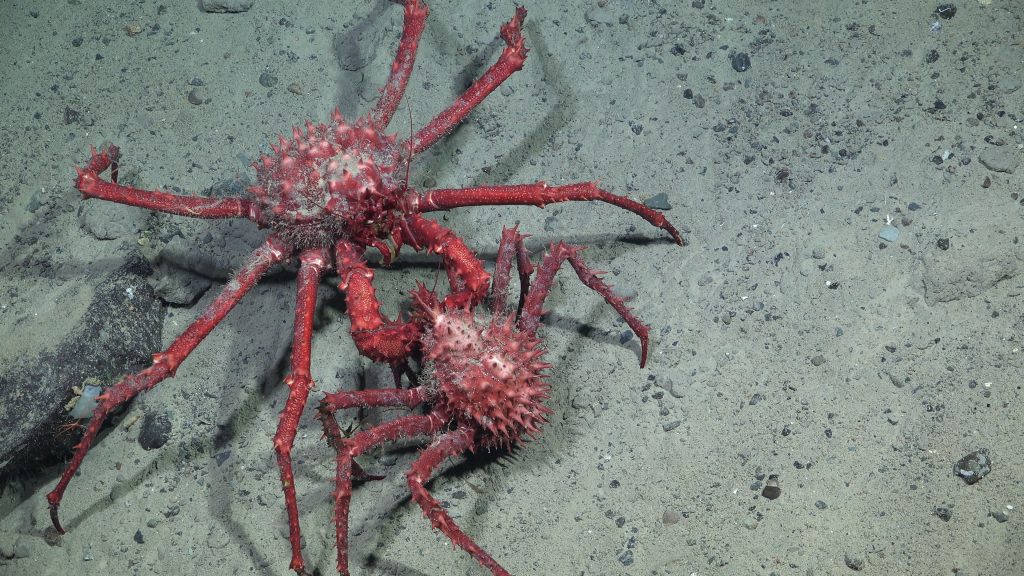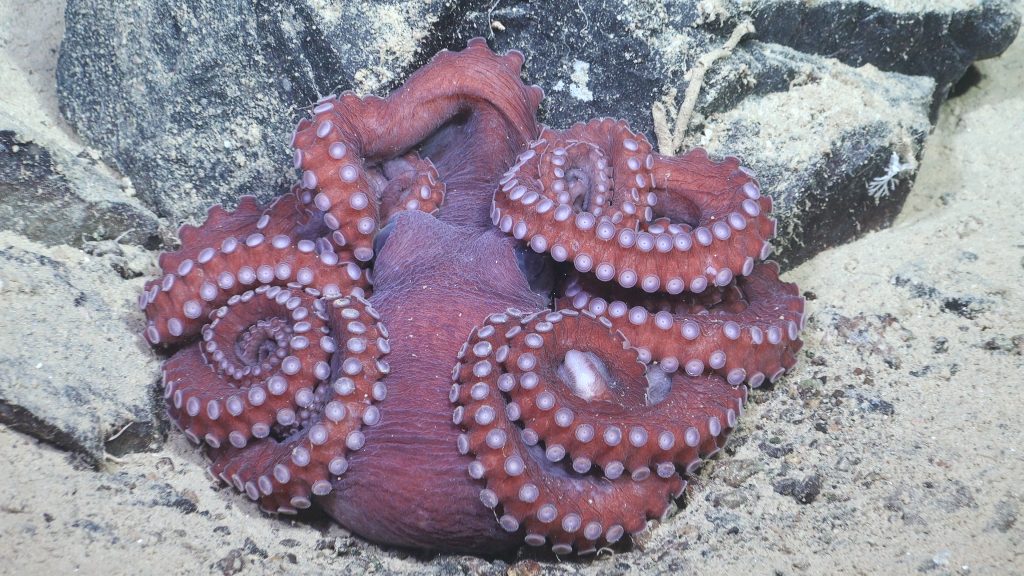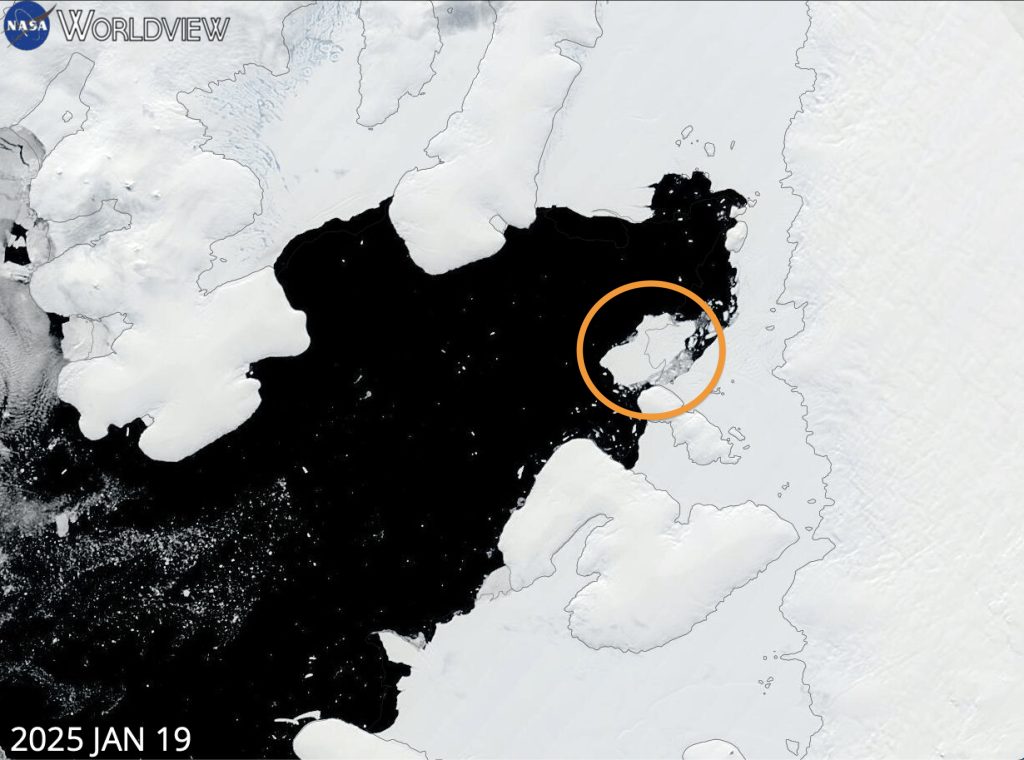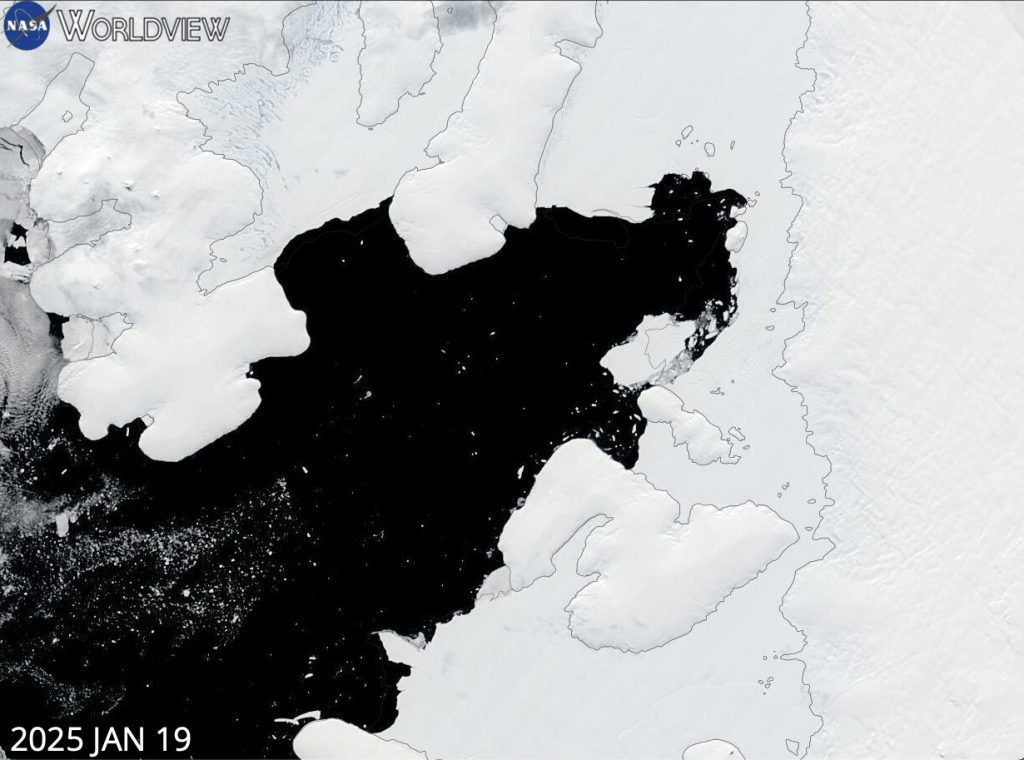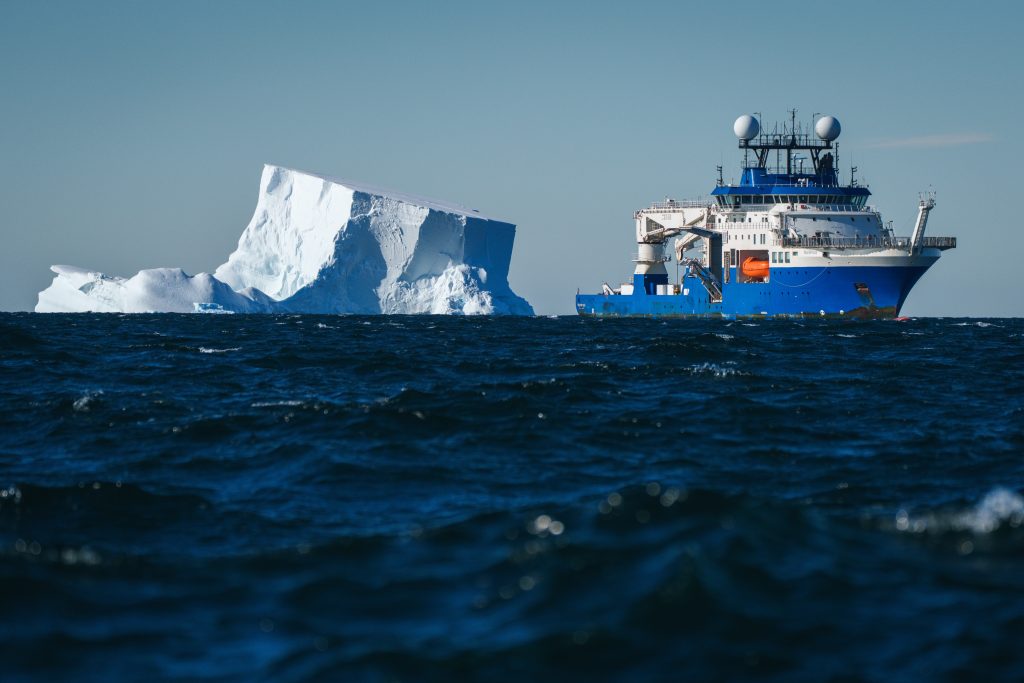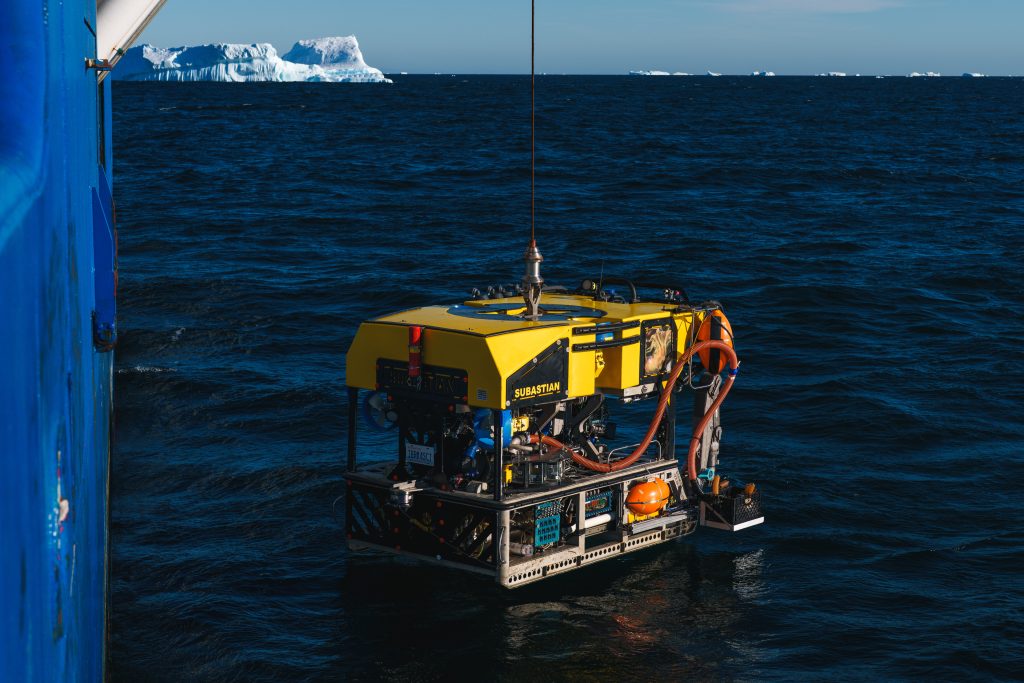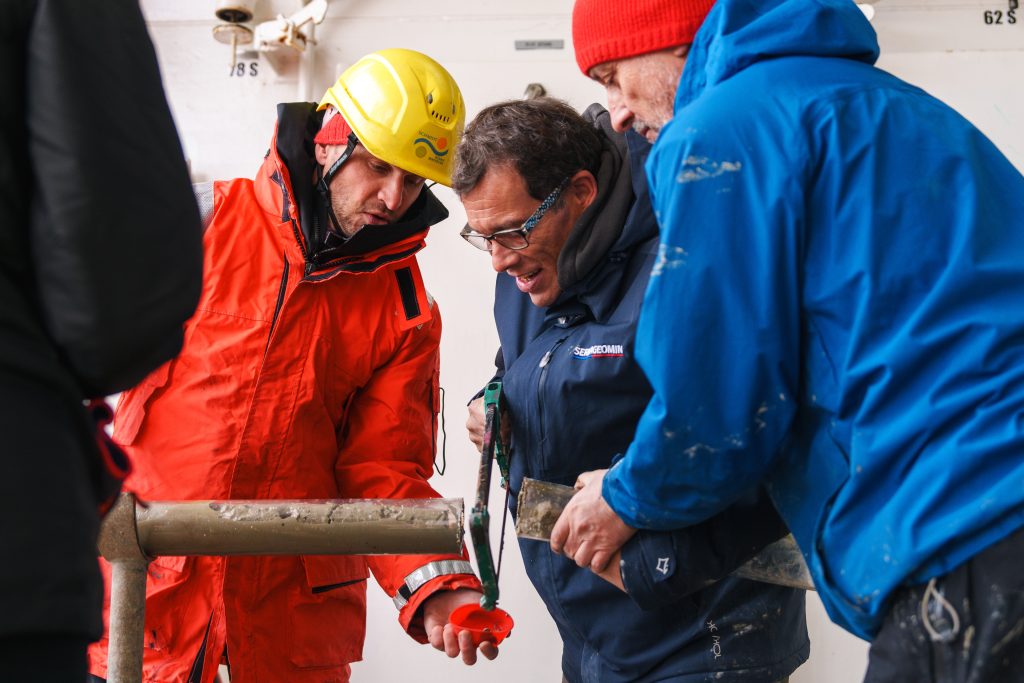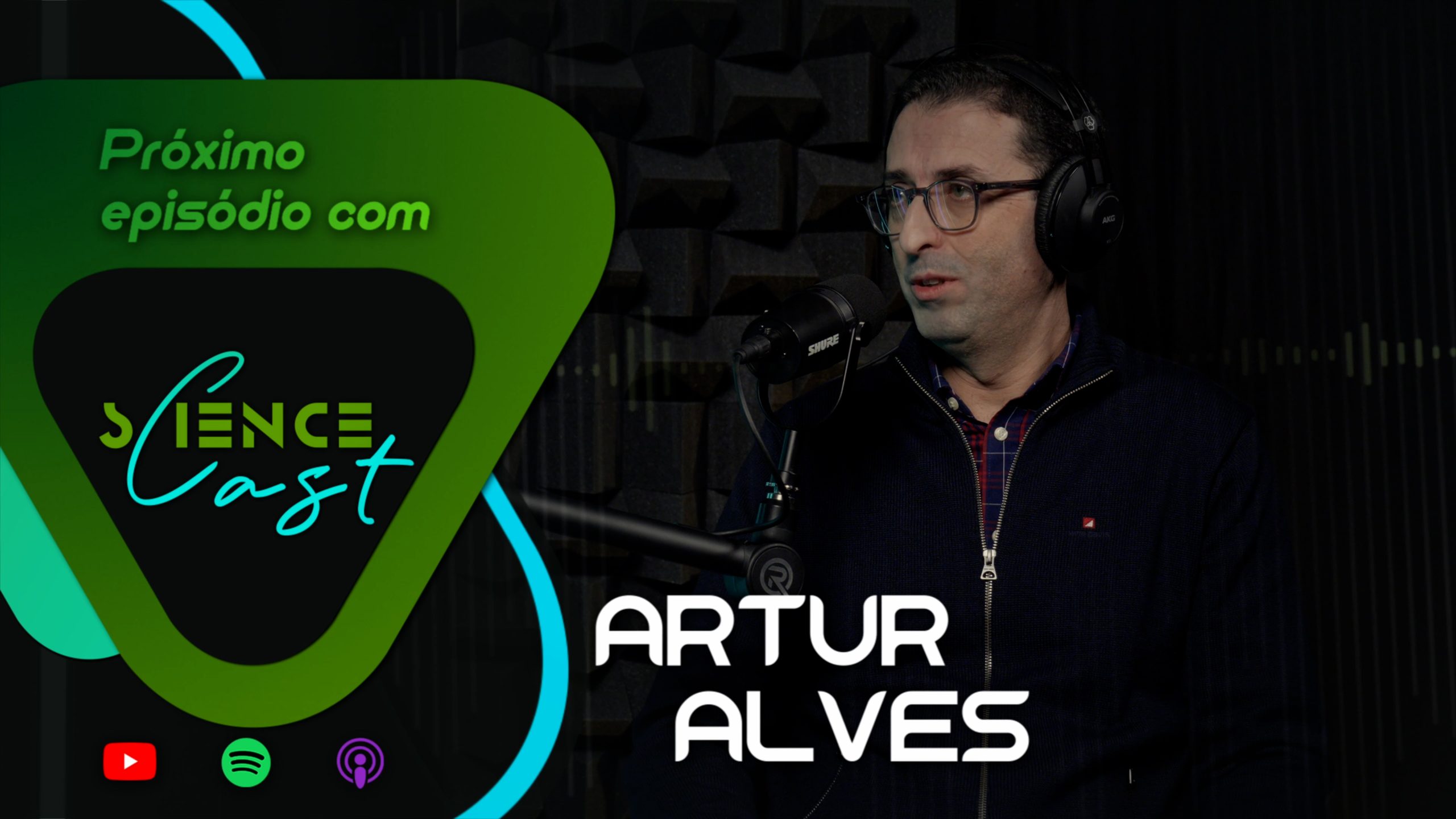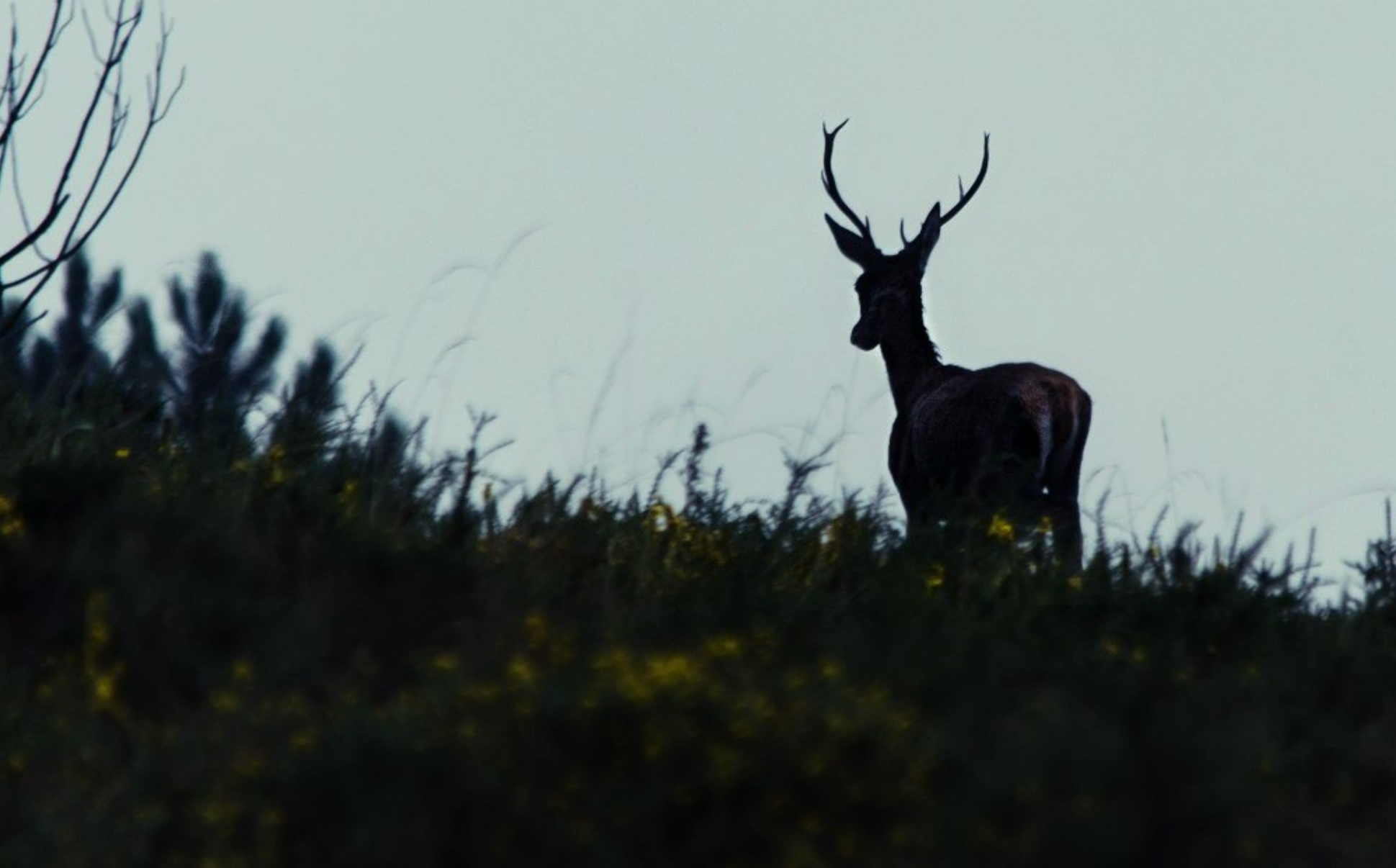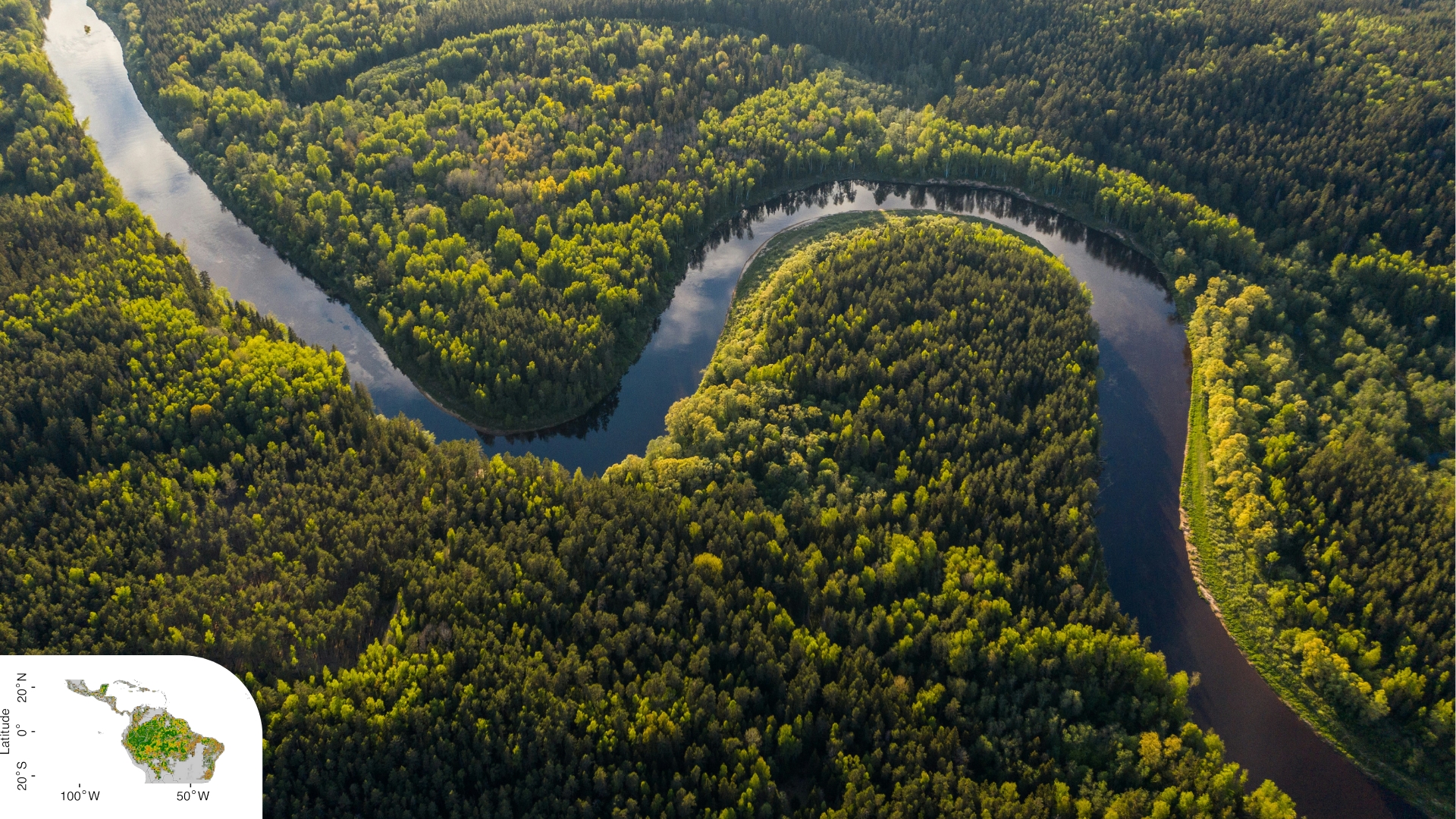On April 9, at 5:00 p.m., the exhibition “The Climate Line” opened at the Hélène de Beauvoir Room in the Library of the University of Aveiro (UA). The exhibition will run until May 21, 2025. It offers a reflection on climate change, using crochet to transform scientific data into textile art. Admission is free, and the event aims to engage both the academic community and the public in raising awareness of one of the greatest global challenges.
“The Climate Line” presents 30 scarves, each representing a year in the climate series of Aveiro, from 1994 to 2023. Each row of crochet symbolizes the average daily temperature of a given day, translating thermal variations into unique, handmade pieces. The project is a collective initiative by researchers from the Centre for Environmental and Marine Studies (CESAM) and the Department of Environment and Planning (DAO) at the University of Aveiro, in collaboration with the University’s Library, Information and Museology Services (SBIDM).
More than just an exhibition, “The Climate Line” offers a new way of communicating science in a sensitive and accessible manner, bringing the community closer to scientific knowledge through creativity. Textile art emerges as a vehicle for reflection on our relationship with the planet and the impacts of climate change on our daily lives.
In addition to the exhibition, two complementary activities aim to deepen public engagement through hands-on experiences related to crochet and atmospheric sciences. On April 10 and 11, from 2:00 p.m. to 6:00 p.m., crochet workshops took place in the Hélène de Beauvoir Room. During these sessions, participants will learn crochet techniques and collaborate in creating new pieces, while being encouraged to reflect on the relationship between art and science.
On April 14, from 4:00 p.m. to 6:00 p.m., the workshop “Data Acquisition for Atmospheric Sciences – ERA5 and CAMS” took palce in the Library’s Training Room. This workshop will focus on using the API provided by the ECMWF/Copernicus Programme to access meteorological reanalysis and air quality data. Registration for this workshop is mandatory.
The “Climate Line” project is supported by Rosários4, a brand recognized for its commitment to sustainability, using ecological fibers and natural dyes, reflecting the values of environmental awareness that underpin the entire exhibition.
Activity Calendar
Exhibition: The Climate Line
April 9 to May 21, 2025 | Hélène de Beauvoir Room, UA Library | Free entry
Crochet Workshops
April 10 and 11, 2025, 2:00 p.m. – 6:00 p.m. | Hélène de Beauvoir Room, UA Library | Free entry
Workshop: Data Acquisition for Atmospheric Sciences – ERA5 and CAMS
April 14, 2025, 4:00 p.m. – 6:00 p.m. | UA Library Training Room | Registration required
“The Climate Line” is a unique opportunity to explore the intersection of art and science, offering a fresh perspective on climate data and the urgent need to take action in response to the changes already affecting our planet. Don’t miss the chance to take part and engage in this important conversation.
Originally published in: UA News, March 25, 2025
